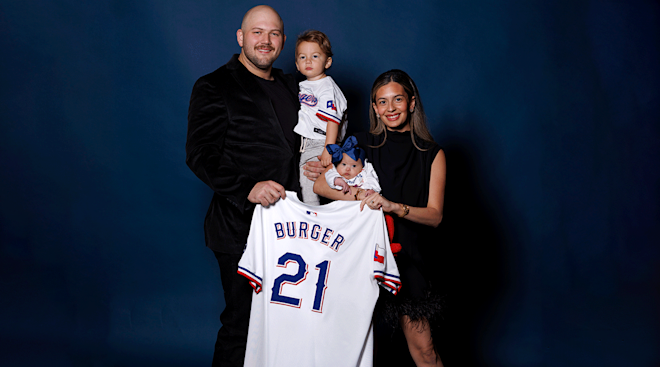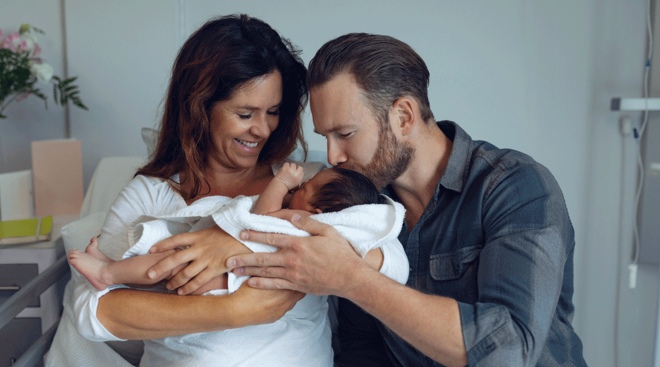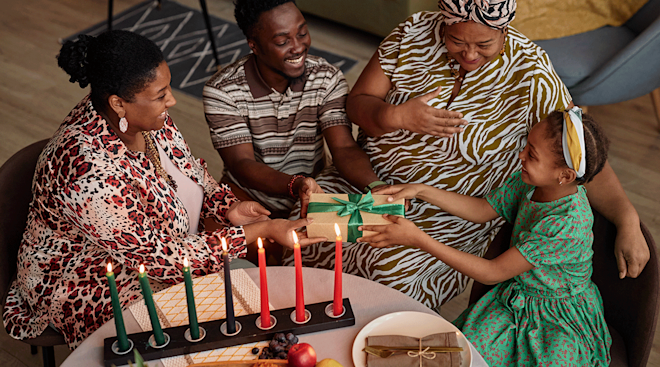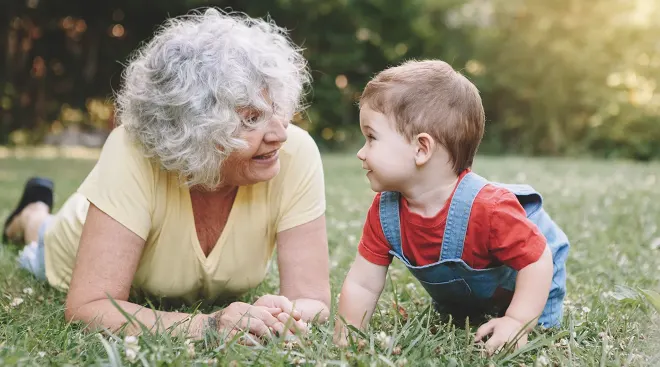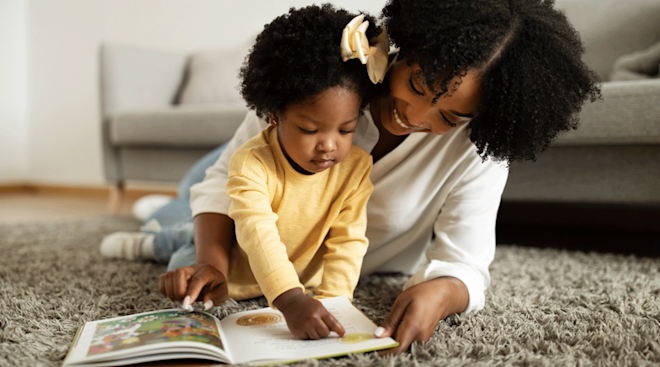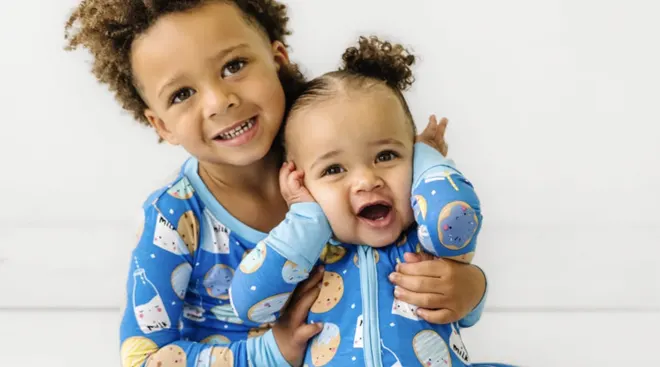Best Types of Parenting Classes for You and Your Family
No one is going to deny it: Parenting is hard work. You’re expected to know how to soothe a newborn baby, navigate the playground scene and handle a toddler tantrum with the calmness of the Dalai Lama. Raising kids is lifelong job that requires you to have a deep understanding of child development, the ability to react quickly and effectively and the patience to manage both your emotions and your child’s. Can you think of any other job that would hire someone with zero experience, provide no training and still expect them to know everything? Didn’t think so.
Luckily for today’s moms and dads, it doesn’t have to be that way, thanks to the large array of parenting classes available.
Feeling isolated, frustrated or clueless is common during difficult parenting moments. But these feelings don’t mean you’re a bad parent—they make you human! By the same token, taking a parenting class doesn’t mean you’re doing a bad job—actually, it’s quite the opposite.
“Parenting is one of the most rewarding and challenging jobs out there, and you don’t need to do it alone. Parents should feel like there are places where they can seek out help and support in a nonjudgmental way,” says Deena Blanchard, MD, MPH. “I think of parenting classes as a way to build on skills you already have, not as a sign that a parent is weak or not a good parent. In fact, admitting you need guidance and wanting to build on your skills as a parent is actually a sign that you’re a thoughtful and engaged parent.”
The purpose of parenting classes are to help parents feel more connected with, involved in and focused on their child. Parenting classes provide education and advice on raising kids and offer an opportunity for parents to share ideas and concerns with other parents dealing with similar issues. Some classes may be mandated by court systems because of abuse or neglect, while other classes are chosen by parents who need some guidance on a particular topic or developmental stage. After all, parenting is a learned skill, and every family can benefit from a little more knowledge and support.
Most parenting classes these days blend research philosophies with been-there-done-that experience, leading to substantial results. Some of the benefits of parenting classes include:
• Learning about different parenting styles and philosophies. You can experiment to see what works best for you and your child.
• Support. Other parents dealing with similar issues or situations can help you feel less alone.
• Learning about your child’s development stages. What’s normal, and what needs to be addressed? Get an expert take on your family’s situation.
• Problem solving. Learn how to tackle situations and stress before they arise.
• Setting expectations. Find out what to expect in the future—and how to prepare for those new challenges.
• Managing stress. Classes can help parents deal with stress and frustrations related to parenting in a calm, beneficial way.
• Relationship management. Classes can also teach parents how to engage meaningfully with their child at every age and stage.
And those are just the benefits to parents. A study by Early Head Start Research and Evaluation (EHSRE) found that parents who took parenting classes stimulated their children’s language and cognitive development and provided educational activities, which helped lead to significant higher cognitive outcomes for their kids. Other research from North Carolina State University, Brigham Young University and the University of California, Irvine found that hands-on parental involvement is a more significant factor in a child’s academic performance than the qualities of the school itself.
That’s not all. Hands-on parenting can also reduce a child’s tendency toward depression by half if the caregiver uses a parenting style tailored to the particular personality or needs of their child, according to a study out of the University of Washington School of Medicine. And parenting classes can help parents of kids with specific needs figure out and master the parenting style that best suits their child.
“Parents who take parenting classes feel less stressed out, have a better awareness of how to support their children in their everyday life and become more reflective in their parenting role and struggle less,” says Hara Ntalla, MSEd/CSE, clinical director of Seleni Institute.
Deciding to take a parenting class is a personal decision. When it comes to practical skills, whether it’s how to handle labor pain or how to diaper a baby, many expecting parents feel comfortable admitting they need guidance and take classes on childbirth or infant care. But as kids get older and figuring out solutions becomes more challenging and less concrete, parents tend to shy away from parenting classes. But consider this: The first three years of a child’s life are extremely important because of how quickly her brain is developing, and the way a child is cared for during those early years has a major impact on how she develops mentally and emotionally. So whether you read a book or take a class or two, it can’t hurt to be prepared.
Looking for a little guidance? Good news: There’s a parenting class to fit every need and address practically every concern. Here are a few kinds of parenting classes you can choose from:
Expecting parents
When baby’s on board, it’s prime time for panicked first-time parents to sign up for a class or two. Childbirth classes discuss topics such as labor and delivery, coping strategies during labor, epidurals and pain medications, medical procedures and what to expect both at the hospital or birth center and during the recovery period. Parents-to-be might also explore infant-care classes, which teach the basics of raising a newborn and go over topics like feeding, sleeping, bathing and soothing baby. Expectant parents also often take CPR and safety classes to learn what to do in case of an emergency.
New parent and baby classes
Never changed a diaper? No worries. You can learn from the experts—and make some mommy friends while you’re at it. Whether it’s breastfeeding issues or CPR safety for extra peace of mind, there are hands-on classes aplenty for the pregnant and recently postpartum. There are also classes to support infant development, which are a mix between a parenting class and a baby class, and some offer overviews of different kinds of early parenting methods, like RIE (Resources for Infant Educarers), which encourages parents to expose children to life as it really is and trust in their ability to handle it. Learning these developmental basics sets parents up for long-term success by establishing behavioral guidelines and parameters.
Child development classes
Toddler tantrums? Potty training? Sibling rivalries? Chances are, there’s a class that’ll tackle whatever behavioral issue you and your kid are battling. Most classes get you up to speed on behavioral basics first, explaining the psychology of infant and toddler development so you can unravel how to apply that to your everyday baby drama. There are classes that discuss sleeping issues, potty training issues and how to prepare your family for a new sibling.
“As your little one grows and develops, there will be other common questions that come up,” Blanchard says. “It’s important to remember that there are multiple ways to approach these topics that are all valid and safe.”
She suggests choosing a class led by someone who’s certified and focusing on classes based on studies and evidence. “Try to choose classes that fit your parenting style as well,” Blanchard says. “If a sleep coach or pediatrician is giving a talk on sleep training and you’re not interested in crying as any part of sleep education, then it’s probably best not to attend that class.”
And you don’t have to worry about aging out of these development classes—they run right on up through the teen years. After all, raising a teenager is just as hard as raising a threenager.
Classes for specific needs
When it comes to parenting quirks and traumas, you might think you’re the only one experiencing a certain situation. But trust us: You are not alone. In fact, there are specialized classes for parents whose children are gifted or have developmental or medical challenges. Whether it’s coparenting after a split, dealing with adoption or foster parenting, or facing a medical challenge, these classes provide strategies, resources and support for managing the issues. In certain cases, as with a split or an adoption, these classes may be mandated by the court system. But even if the class isn’t required, coparenting classes are a way to shift attention away from the divorce and toward the needs of the children. There are also classes that focus on particular parenting philosophies or styles, from positive parenting to attachment parenting to active parenting.
“Many parents come to class because they’re determined not to repeat the parenting patterns they were raised with. Some want to yell less, and others want to learn how to say no and set boundaries that were never appropriately set for them,” says Debbie Zeichner, LCSW, a parent coach. “Having the opportunity to learn from an experienced instructor while receiving support from other parents is truly invaluable.”
Parenting classes offered at a variety of places, including hospitals, preschools, pediatrician offices, social service facilities and on the internet. The best way to find a reputable class is to speak with your ob-gyn, pediatrician, friends and colleagues, whether it’s for childbirth classes, infant-care classes or new mom support.
Parenting classes range in price from free to hundreds (or even thousands) of dollars. Childbirth, labor and delivery and infant classes are the most costly, especially in cities, and parenting classes that are structured as a four- or six-week series are generally more expensive than a single-session class. But look around before you commit: Free parenting classes or workshops may be given through your local preschool or religious institution.
Interested in taking a parenting class but can’t carve out enough time? Consider online parenting classes, which you can listen to from home and on your own schedule. Some online parenting courses may be free, but then you can purchase the recordings afterward to listen to at your leisure. If you don’t have the ability to attend a class (hi there, new moms), sometimes you can join a webinar or a Facebook Live event and ask questions from home.
“Parents who seek out my classes are typically looking for guidance on how to help their child with a particular issue, and sometimes they can’t make it to therapy because of a multitude of barriers,” says Natasha Daniels, LCSW, creator of AnxiousToddlers.com, who teaches classes centered on behavioral and mental health issues. “Online class offers them the convenience of tapping into a professional’s guidance in the privacy of their own home, at their own pace.”
Another option that’s similar to a parenting class but offered in a slightly different format? Online parenting conferences. For example, the Positive Parenting Conference is an event organized by Sumitha Bhandarkar, editor at A Fine Parent, an online community for parents. Each year this conference brings together parenting and psychology experts, all of them authors of popular parenting books, to present different aspects of Positive Parenting.
Parenting classes are a wonderful way to acquire new skills, learn more about your child, improve your parent-child (or parent-parent) relationship and increase your confidence. With so many options, there is a parenting class for every parent, new or experienced.
Navigate forward to interact with the calendar and select a date. Press the question mark key to get the keyboard shortcuts for changing dates.


































